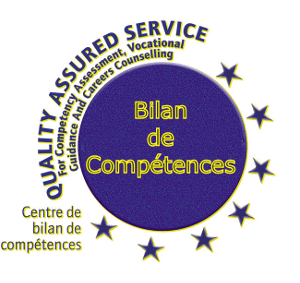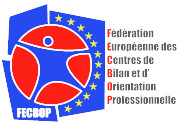QUALITY LABEL
The European Quality Label for bilan de compétences gives gives individuals and organisations the assurance to find appropriate and high quality solutions to their needs in term of career evolution, transitions and HR management in an ever evolving labour market.
Individuals, institutions and other public or private bodies wish to be able to rely on highly qualified centres for bilan de compétences, guidance and career counselling in their geographical area. The European quality label created and managed by the FECBOP meets this request.
The European quality label:

- prevents the confusion in using the words “bilan de compétences“,
- supports the continuous improvement of the centres,
- identifies the centres with excellent performances in terms of quality and deontology of their practises,
- ensures that clients – both individual and institutional – are dealt with by qualified staff and receive specific and appropriate solutions to their needs.
Our ethical principles
The Centres for bilan de compétences, guidance and career counselling strictly respect the legal requirements concerning the privacy and data protextion. The quality label is awarded by the FECBOP to those providers of bilan de compétences, guidance and career counselling that apply the norms required by the quality criteria in all their interventions, without exception.
- The beneficiary of the bilan de compétences must voluntarily agree with the procedure at it’s begining.
- Only information directly and necessarily linked with the career guidance process will be required by the beneficiary.
- The beneficiary is the unique owner of the final report and other results of the bilan de compétences. Any social use of the final report must be agreed by the beneficiary and must respect the legal requirements.
Our quality criteria
The methodological and organizational aspects of the bilan de compétences are defined by the following quality criteria:
CRITERION 1: PURPOSE OF BILAN DE COMPETENCES
The purpose of the bilan de compétences is to define a career project integrated into the socio-professional environment of the beneficiary.
CRITERION 2: PRINCIPLES
The beneficiary is an actor of his bilan de compétences. He is a subject, not an object of expert analysis.
CRITERION 3: INTRODUCTORY INFORMATION
The introductory and information phase precedes the realisation of the bilan de compétences.
CRITERION 4: GENERAL ORGANISATION
Bilan de compétences includes three distinct phases, each of them includes at least one face to face interview.
CRITERION 5: CONCLUSIONS
The conclusion phase should produce a final report that is handed to the beneficiary.
CRITERION 6: RECOGNITION AND ACCREDITATION
The bilan de compétences contributes to the recognition or validation of results of informal or non-formal learning.
CRITERION 7: MULTIDISCIPLINARY COMPETENCES AND PRACTICES
The staff of the centre of bilan de compétences has skills that guarantee a multidisciplinary view.
CRITERION 8: FURTHER TRAINING OF COUNSELLORS
The centre provides the necessary means for training and professional development of counsellors.
CRITERION 9: RESEARCH AND DEVELOPMENT
The centre ensures continuous development of methods and practices based on monitoring and research.
CRITERION 10: FOLLOW-UP
The centre carries out the follow-up of the beneficiaries and controls the process and the results.
CRITERION 11: LOCAL DEVELOPMENT AND NETWORKING
The counselling is based on the strategic management that takes into account the policies of local development as well as the needs of the labour market and companies. It proposes guidance in the perspective of the lifelong career path.



